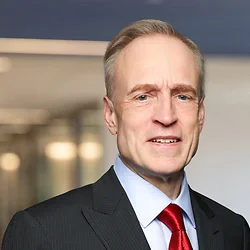Congress Expands PPP Forgiveness and Relaxes Spending Rules
This week, Congress passed significant amendments to the CARES Act provisions relating to loans under the Paycheck Protection Program (PPP) (the “Flexibility Act Amendments”).
The highlights of the Flexibility Act Amendments include the following:
- Recipients of loan forgiveness under the PPP may now defer payroll taxes as if no portion had been forgiven.
- The minimum maturity of the PPP loan is now 5 years for loans made (a) after the enactment of the Flexibility Act Amendments, or (b) prior to the enactment of the Flexibility Act Amendments, upon agreement by the lender and the borrower.
- The forgivable amount is now based on permitted expenses (payroll, rent, utilities, and mortgage interest) during a period ending on the earlier of (a) 24-week period from the date of the making of the PPP loan, not the prior eight-week period, or (b) December 31, 2020.
- Extension of the date by which a company needs to restore aggregate salaries and wages (for employees earning less than $100,000 per year from salaries and wages) or its full-time equivalents (FTEs). The date has been extended from June 30, 2020 to December 31, 2020
- The reduction in the forgiveness, during the period beginning on February 15, 2020 and ending on December 31, 2020, is to be determined without regard to a reduction in the number of full-time equivalent employees if the borrower is unable to rehire an individual who was an employee of the borrower on or before February 15, 2020; or the borrower is able to demonstrate an inability to hire similarly qualified employees on or before December 31, 2020.
- During the period beginning on February 15, 2020, and ending on December 31, 2020, the amount of loan forgiveness under this section is to be determined without regard to a reduction in the number of full-time equivalent employees if the borrower, in good faith, documents an inability to (a) rehire persons who were employees on February 15, 2020; or (b) hire similarly qualified employees for unfilled positions on or before December 31, 2020.
- During the period beginning on February 15, 2020, and ending on December 31, 2020, the amount of loan forgiveness is not reduced based a reduction of full-time equivalent employees if (a) the borrower, in in good faith, documents an inability to return to the same level of business activity as such business was operating at before February 15, 2020, and (b) such inability to operate was due to compliance with requirements established or guidance issued by the Secretary of Health and Human Services, the Director of the Centers for Disease Control and Prevention, or the Occupational Safety and Health Administration. The applicable rules excusing reductions are those from March 1, 2020 through December 31, 2020. These federal rules relate to the maintenance of standards for sanitation, social distancing, or any other worker or customer safety requirement related to COVID-19.
- To receive any loan forgiveness, a borrower is to use at least 60 percent of the covered loan amount for payroll costs, and may use up to 40 percent of such amount for any payment of interest on any covered mortgage obligation (which shall not include any prepayment of or payment of principal on a covered mortgage obligation), any payment on any covered rent obligation, or any covered utility payment.
- A borrower that received a PPP loan before the date of the final enactment of the Flexibility Act Amendments may elect a period of forgivable expenses that ends eight weeks after origination of the prior PPP loan.
- The PPP loan deferral period is no longer six to 12 months, but is to be until the date on which the amount of forgiveness determined under the CARES Act is remitted to the actual PPP lender by the Federal government. However, if a borrower fails to apply for forgiveness of a PPP loan within 10 months after the last day of the period for which loans will be forgiven (24 weeks or December 31, 2020, as described above), then such borrower shall pay the loan beginning not earlier than 10 months after the last day of such “covered period.”
- Except as stated above, the expansion of the more generous loan forgiveness provisions in the Flexibility Act Amendments is retroactive to include all PPP loans issued since the original CARES Act.
We have written extensively about the PPP in articles which can be found here. For details regarding the PPP forgiveness rules, see our article here.
Related Professional
- Partner
Related Practices & Industries
Sign-Up
Subscribe to receive firm announcements, news, alerts and event invitations.


